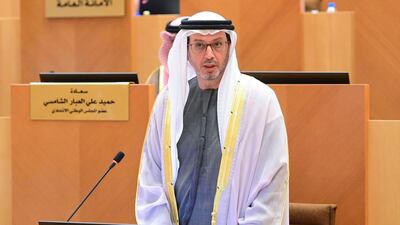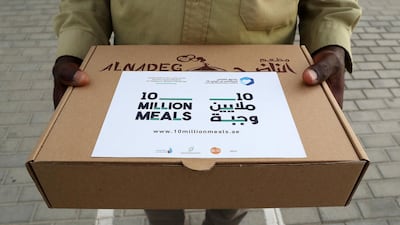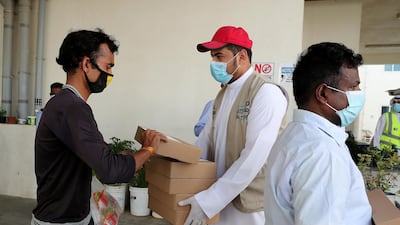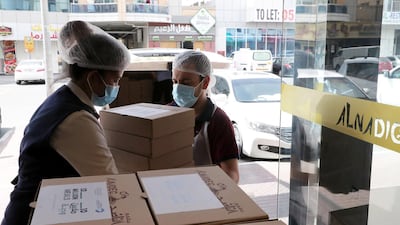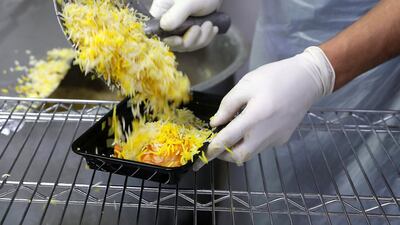The Federal National Council passed a new draft law on illegal donations on Tuesday.
Once the law is approved, those who flout it could face jail for up to three years and have to pay fines of between Dh100,000 and Dh500,000.
The law will help authorities regulate donation activities and ensure money is not used to fund terrorist groups.
Once it is enforced, all charity organisations will be digitally linked to a government database holding detailed information on their operations, activities and transactions.
“The new e-system will protect the donors’ money and ensure it goes to its deserved parties,” said FNC member Dherar Al Falasi.
He said monitoring donations is important to avoid money being diverted to the wrong people and groups.
A similar system was launched in 2015 by Dubai’s Islamic Affairs and Charitable Activities Department.
“A lot can be learned from the system in Dubai. They have been doing it for five years and managed to fill all the gaps,” Mr Al Falasi said.
“Some emirates have already developed similar systems internally, but our goal is that this is applied across all the country.”
Only licensed organisations or those with a permit can collect donations.
If an unauthorised company or group wishes to run a fundraising campaign, it can work with a licensed organisation, Mr Al Falasi said.
Under the new law, residents who flout the rules can be deported.
People who are associated with a donation drive that breaches public security, incites racism or abets religious or ethnic discrimination will be punished.
“The penalties must be strict and deterring, because we don’t want to leave room for manipulation,” Mr Al Falasi said.
“Some organisations could have good intentions, but then they transfer donations to suspicious parties, so the law must be strict.”
Licensed organisations can collect donations up to four times a year.
“Charity organisations have other responsibilities too, but some of them ignore their other duties and only focus on donation collection,” he said.
“They need around three months to run a campaign and close the accounts and disclose their transactions to the authorities.”
He said the process could barely be done four times a year.
“The goal is for them to focus on their other duties as well.”
If an organisation is capable of running a fifth campaign, they could seek approval “and could be granted an extra instance if they have a good record,” Mr Al Falasi said.
An increase in donation drives during the pandemic and the risk of money being used for illegal activities prompted authorities to pass the new draft law.
“In Dubai, the government itself was running a campaign for food, so there was no need for people to collect money individually,” Mr Al Falasi said.
He is also the executive director of Watani Al Emarat Foundation, which ran the 10 Million Meals campaign during Ramadan last year.
